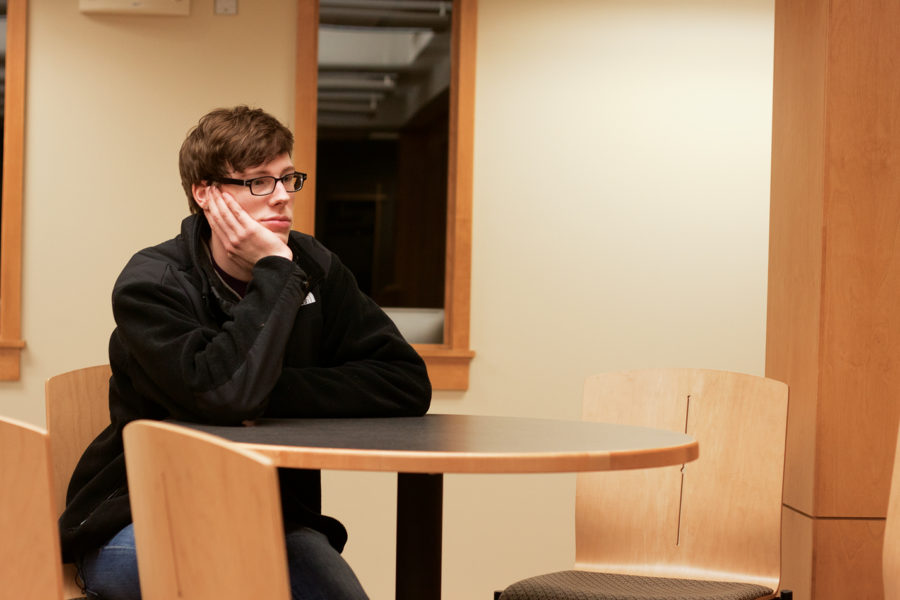Professors’ research shows loneliness declines as students age
Photo: Rebekka Brown/Iowa State Daily
Photo: Rebekka Brown/Iowa State Daily
January 24, 2011
The UCLA Loneliness Scale discovered that college students are on the highest scale of loneliness, and that number tends to decline as students get older.
Daniel Russell, professor of human development and family studies, and his wife, Carolyn Cutrona, chairwoman and professor of psychology, established the UCLA Loneliness Scale in the 1980s.
The scale works by determining a subject’s loneliness by scoring their responses made on a four-point scale calculated by 20 questions.
The two major factors of being lonely involve one’s social network —family and friends — and personality characteristics.
“‘Are you lonely?’ If you ask about loneliness explicitly like that people are not going to answer that they are lonely,” Russell said. “Also, if you measure loneliness that way you find a sex difference, where when using the scale you won’t.”
The UCLA study in 1978-1979 tested how lonely freshmen were after moving away from home and into a new environment.
In the fall semester, 75 percent were lonely, and in the spring semester that number dropped down to 25 percent.
The research concluding that freshmen are lonely is based off of the Iowa City study where Russell and his wife tested 100 freshmen, 100 sophomores, 100 juniors, 100 seniors and 100 graduate students.
“Freshmen tended to be lonely due to lack of friends. As students got older, their loneliness changed to issues with romantic relationships,” Russell said.
For Wesley Henry, sophomore in pre-business, the freshman blues did not affect him. Henry adjusted to Iowa State easily.
“I had a couple of friends here at Iowa State already, so that helped, but I have met a lot more since being here a semester,” Henry said.
Russell tested around 900 ISU students in 1995 from the introductory psychology subject pool. The average level of loneliness was 40, which classified 31 percent of the students as lonely.
“ISU students are comparable to what we found for college student samples at the [U of Iowa] and UCLA,” Russell said.
“As freshmen, we are lonely because we don’t know anyone,” said Kristen Whipps, senior in elementary education. “You try to make friends and spend a lot of time socializing and meeting new people. But by the time you’re a senior, you have already established your friend groups, so you tend to focus on what is next in life.”
Russell and Cutrona are hoping to perform another round of tests at Iowa State, but need the appropriate funding first.

















